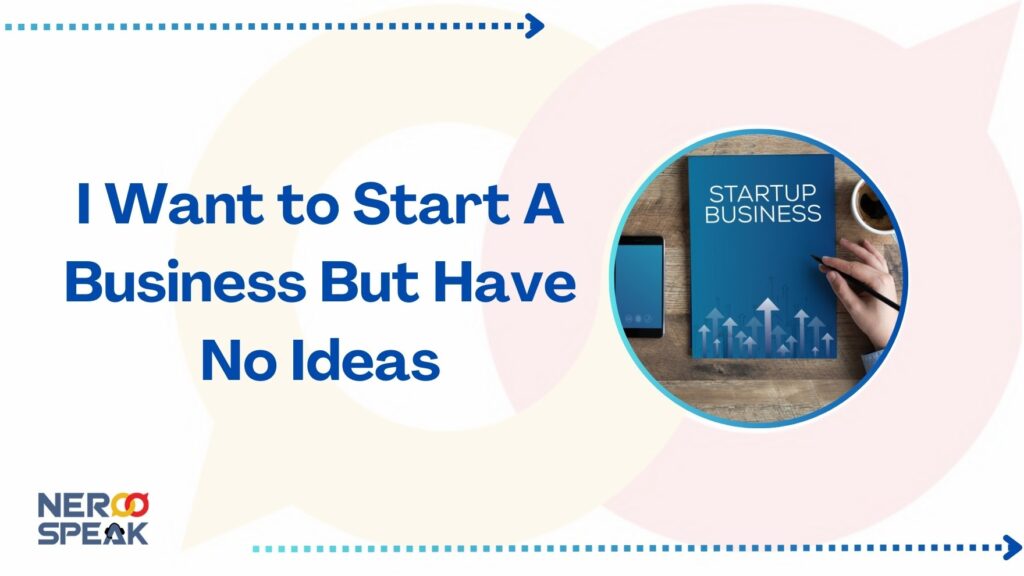I want to start a business but have no ideas and no money!
If you say this to yourself often, these ideas are for you. Starting a business with no ideas and no money can feel overwhelming, but you can succeed with creativity, smart thinking, and hard work. Here are some steps to help you along the way:
Identify your skills and interests
Use what you already know and like to do. Write down your skills, hobbies, and what you are good at. Think about how you can change these into a business.
Research market needs
Find gaps in the market that you can fill.
Researching what customers want means figuring out their needs, wants, and problems in a certain market. This step helps business owners see what products or services people need and how they can provide value to their audience. By doing this research well, businesses can create products that are more likely to do well and satisfy what customers expect.
Start small and lean
Minimize risk and investment.
Starting small and lean means starting a business with few resources and low costs. It focuses on the most important tasks to check the business idea quickly and effectively. This method helps owners try out their ideas, lessen risks, and make needed changes before growing. The aim is to stay away from big upfront costs and cut waste by always learning and getting better based on actual customer feedback.
Use free resources
Using free resources to start a business means using several no-cost tools, platforms, and services that are available for entrepreneurs. This helps you lower startup costs and work well. These resources can be educational materials, business tools, software, and community support. All of these can help you start and grow your business without spending a lot of money.
Unlock the secrets of success and start reading now about the best Online English Class Recommend

Types of Free Resources
There are a lot of resources I can benefit from if I want to start a business, but have no ideas. For example:
1- Educational Materials
- Online Courses: Websites like Coursera, Khan, and Udemy offer free classes on starting a business, marketing, finance, and more.
- Business Guides: Groups like the Small Business Administration (SBA) and SCORE give good guides and templates for planning a business.
2- Business Tools and Software
- Website builders like WordPress, Wix, and Weebly have free plans for creating and hosting websites.
- Accounting software like Wave gives free accounting and invoicing tools.
- Project management tools like Trello and Asana provide free versions to manage tasks and projects.
3- Marketing and Promotion
- Social Media: Use free platforms like Facebook, Instagram, Twitter, and LinkedIn to promote your business. You can also talk with your customers there.
- Email Marketing: Take advantage of free plans from email services like Mailchimp. This will help you build your list of subscribers and send out newsletters.
4- Networking and Community Support
- Local Business Groups: Join free local business groups or chambers of commerce. You can connect with other entrepreneurs and get support.
- Online Forums and Communities: Take part in free online forums and communities like Reddit’s r/entrepreneur or LinkedIn groups.
5- Mentorship and Advice
- SCORE Mentorship: SCORE gives free mentoring from experienced business experts.
- SBA Resources: The SBA offers free consulting, training programs, and tools for small business owners.
Expand your knowledge today and Improve Your Career by Learning Professional English
Leverage social media
Using social media means making the most of social media platforms in smart ways. This helps reach goals like building a brand, connecting with an audience, marketing, and growing a business. It also includes using different features and tools on these platforms to increase reach and effectiveness.
Create social media profiles. Start to build a following. Share useful content about your business idea.
Network and collaborate
Networking and teamwork are important in both personal and work settings. They focus on making connections and joining forces to reach shared goals.
How to Network and Collaborate Effectively?
- Attend Events: Attend industry conferences, workshops, and meetups to meet new people and learn about the latest trends.
- Join Online Communities: Get involved in online forums, social media groups, and professional networks like LinkedIn.
- Offer Value: Be ready to share your knowledge and help others without wanting anything back.
- Communicate Clearly: Make sure to share your ideas, expectations, and feedback clearly.
- Be Open to Feedback: Listen to what others say and be willing to change and grow based on their suggestions.
Offer services instead of products
Offering services instead of products means using your skills, knowledge, and time to help clients with tasks or solve problems. This way, you are not selling physical goods. Instead, you focus on things that meet the needs of customers through your actions and results, not through items they can touch.
Think about freelance work, consulting, tutoring, or other services where you can use your skills.
Barter and trade
Barter and trade mean the swapping of goods or services without using money. This system depends on direct deals between people who talk to agree on the worth of the goods or services they are trading.
Barter vs Trade
- Medium: Barter does not use money, but trade usually uses money to buy and sell.
- Complexity: Barter is simple. Trade, on the other hand, can be more complicated with systems and global markets.
- Flexibility: Barter can be easier when cash is low. Trade usually has more rules and structure.
Important Notes:
If I want to start a business but have no ideas and no money, I’ll ask an important question: “Where should I start now?”
Here are some useful tips to help you along the way:
- Start by Identifying Problems
- Validate Your Ideas
- Leverage Free Resources
- Consider Low-Cost Business Models
- Build a Network
- Start Small, Scale Gradually
- Understand the Importance of Marketing
- Manage Time and Focus
- Look for Funding Options if Needed
- Be flexible and adaptable
We hope you had a good read!!
FAQs:
1- Is it possible to start a business without an idea?
Yes, if you see what the market needs and use your skills, you can discover chances even if you don’t have an initial idea.
2- Is the easiest business to start?
Service-based businesses, like freelance work, consulting, or tutoring, are usually the easiest to begin with very little money.
3- How do I start a business with no money and no idea?
Identify your skills and interests. Research what people need in the market. Start small and use free resources. Make use of social media. Connect with others and think about businesses based on services.
4- How do I start a business if I don’t know what to do?
Look at market trends. Find problems to solve. Start with what you are good at. Seek help from mentors and business resources.
Browse our website NerooSpeak now and explore more useful articles! For example:
- All About Chief Business Officer (CBO)
- All About Customer Business Emoticon
- Powerful Words for Business Names
- Business Words Glossary
- Best Business English Certificate in 2025

Haya Yaseen is a skilled WordPress editor and a dedicated business management specialist. With a keen eye for detail and a passion for crafting engaging digital content, Haya excels in creating and managing professional WordPress websites. She combines her technical expertise with her strong background in business management to deliver innovative and client-focused solutions.
Haya is an alumna of The University of California, Los Angeles (UCLA), where she earned her degree in Business Administration, further refining her skills in strategic thinking and organizational management. Her academic background, paired with her professional experience, makes her a versatile and results-driven individual in the fields of web development and business management.